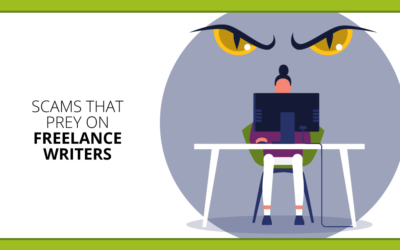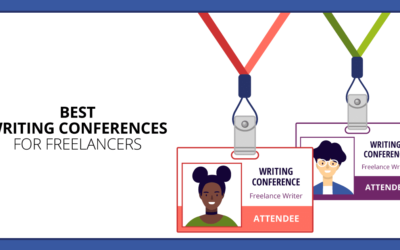
Do you dream of the day when you can quit your day job and devote yourself to writing for money?
I did, too. So one day, I did it. I quit my $80k salary + benefits corporate job to be a full time freelance writer.
What was I thinking?
I thought being a full time freelance writer would be easy. That the jobs would flow in and I would have as much work as I could possibly handle.
Then reality set in. The work from the move-up mill I was relying on started to dry up. After that, the little money I had set aside was gone.
3 Things I did wrong
Mistake #1 was not discussing my decision to quit my job with my husband. I knew he would talk me out of it. No, I turned in my resignation almost two weeks before letting my husband know that I had quit. Bad idea.
Mistake #2 was letting fear prevent me from marketing. Because I wasn’t marketing – gasp – my writing gigs dried up. I let the doubt and depression from everyone telling me that I was crazy to quit my job for “a hobby” seep in and cause me to feel overwhelmed and afraid to put myself out there.
Mistake #3 was quitting my job at a time when I had three major events happening in my family’s life: a wedding, the end of my husband’s interim job, and legal action due to a dissolved business partnership.
What would I do differently?
Looking in the rearview mirror, I can see the things I should have done before I quit my job.
- Keep marketing. Instead of waiting for a response after sending resumes and queries to job board ads, I would continue marketing on a regular basis.
- Have patience. I didn’t want to wait at least a year to make sure my writing gigs were solid before I submitted my resignation.
- Find support. Even if I couldn’t get total support from family, having one or two friends to go to for support would have helped get me through the rough months.
- Save more money. When I quit, I had only one month’s worth of savings and a wedding to pay for that sucked up most of our cash.
I’m not saying that you should wait for enough money to instantly replace your working income. There is a point where you have to take the leap because the income is heading in the right direction. For us, saving at least six months’ worth of expenses would have kept us out of crisis mode until the writing gigs picked back up.
When should you quit your day job?
There is never going to be a “best time” or “right time” to quit your job.
However, if you have ongoing work and your part-time freelance work is starting to interfere with your full-time job, it might just be time to take that leap.
Even if you find yourself in crisis mode, desperation can force you to increase your marketing efforts. In my case, that marketing helped me gain three steady contracts.
Yes, I quit at the wrong time. But then again, maybe it wasn’t such a bad time after all.
Have you made the leap to full-time freelancing? Tell us how you did it in the comments — or what’s keeping you from making the jump.
Teressa Campbell is a freelance writer and training consultant in Nashville, Tennessee.










